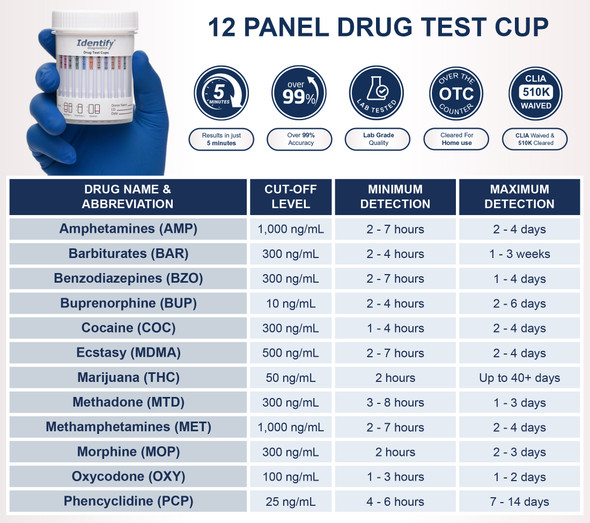Description
We have found many physician owned labs struggled to properly manage urine samples as well as information received from drug screening. Imaging having access to reports immediately after the sample is run. Image the physician needed to make a medical decision for a medication refill but he or she is on vacation. With our LIS system all data is available in real time with Internet explorer.
Running a chemistry analyzer in the physician setting without this LIS system is not recommended. LIS is also sometimes referred to as LIMS or Laboratory Information Management System
Paracelsus is a web-based toxicology results system with data provided right to the desktop. It has tools to help you effectively manage your drug testing program with timely test results. It provides an easy to use, intuitive means to enter data, generate orders and retrieve results quickly and easily. All the criteria needed to run a full lab are available; chain of custody documentation, bar coding (used to integrate with drug testing instruments), multi-tiered hierarchy, random color code scheduling, online reports, and the ability to invoice agencies and sub-agencies. Paracelsus is an inexpensive way to control your drug testing needs and perform accurate drug testing for your customers.
LIS / LIMS Features:
- 24 x 7 System Access via the Internet
- Intuitive, User Friendly Screens
- Web-Based Order Entry
- Remote Data Entry to Schedule Tests
- Global Search Capability
- Random Color Coding
- Barcode Label Generation
- Multi-Tiered Hierarchy
- Web Based Results Queries – From the Lab to Your Laptop
- Unlimited Random Color Pools to Schedule Donors
- Chain of Custody (COC)
- Online or Printed Reports
- Secure 128 Bit Encryption to Protect Information
- Drug Court Case Management (DCCM) Integration
- Instrument Integration
- Hosted Solutions
- Remote System Management
- On-site and Live Remote Training
- 24 x 7 Support with Live Coverage, Online Support and Web Based Assistance
A Laboratory Information System (LIS) is a critical component in modern clinical and diagnostic laboratories. It is a software-based solution designed to manage and streamline the workflow, data, and processes within a laboratory. Here's an overview of the key features, benefits, and components of an LIS:
Key Features
-
Sample Management:
- Tracking: LIS tracks samples from collection through analysis and storage.
- Labeling: Generates barcodes and labels for accurate sample identification.
-
Test Ordering and Results Management:
- Order Entry: Facilitates electronic test ordering, reducing errors associated with manual entry.
- Result Reporting: Automates result entry and ensures timely reporting to healthcare providers.
-
Data Management:
- Data Integration: Integrates with other healthcare systems (e.g., EHR, EMR) for seamless data exchange.
- Data Storage: Provides secure and organized storage of patient and test data.
-
Quality Control:
- Compliance: Ensures laboratory processes meet regulatory and accreditation standards.
- Audit Trails: Maintains comprehensive audit trails for tracking changes and ensuring data integrity.
-
User Management:
- Access Control: Manages user roles and permissions to ensure only authorized personnel access sensitive data.
- Training and Support: Includes modules for user training and support to enhance productivity and adherence to protocols.
Benefits
-
Increased Efficiency:
- Reduces manual paperwork, streamlines workflow, and accelerates turnaround times.
- Enhances sample tracking and reduces the risk of lost or mislabeled samples.
-
Improved Accuracy and Reliability:
- Minimizes human errors through automation and standardized procedures.
- Ensures accurate and timely reporting of lab results.
-
Enhanced Data Management:
- Provides robust data management and reporting capabilities for better decision-making and research.
- Facilitates data integration with other healthcare systems for a comprehensive patient record.
-
Regulatory Compliance:
- Assists laboratories in maintaining compliance with regulatory requirements such as CLIA, CAP, and ISO standards.
- Supports quality control and assurance processes to meet accreditation standards.
-
Cost Savings:
- Reduces operational costs through improved efficiency and reduced errors.
- Optimizes resource utilization and inventory management.
Components of LIS
-
Core Database:
- The central repository for all laboratory data, including patient information, test orders, and results.
-
User Interface:
- The interface through which users interact with the system, designed for ease of use and efficiency.
-
Integration Engine:
- Facilitates the exchange of data with other healthcare systems and devices, such as analyzers and hospital information systems.
-
Reporting Tools:
- Generates customizable reports for internal use, regulatory compliance, and external stakeholders.
-
Security and Compliance Module:
- Ensures data security, privacy, and compliance with industry regulations.
Conclusion
A Laboratory Information System is an essential tool for modern laboratories, offering numerous advantages in terms of efficiency, accuracy, data management, and regulatory compliance. By automating and streamlining laboratory processes, an LIS enhances overall productivity and contributes to better patient care and outcomes.







